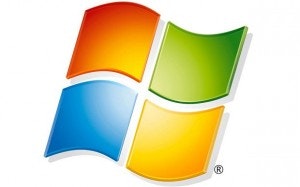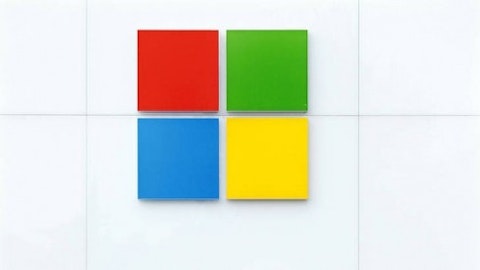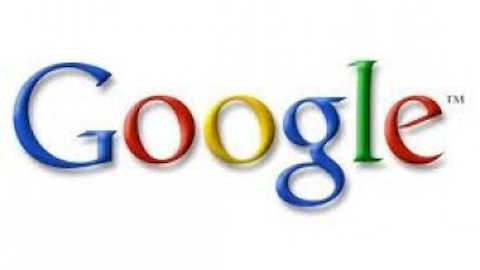In a recent stock-talk program by CNBC, the analysts asked which company is better: Microsoft Corporation (NASDAQ:MSFT) Microsoft Corporation (NASDAQ:MSFT) or Google Inc (NASDAQ:GOOG) Google Inc (NASDAQ:GOOG)? The analysts referred to the recent better-than-anticipated quarterly reports of Microsoft that led shares of the company to rally. On the other hand, the market didn’t react well to the first quarter financial reports of Google. In order to answer the above question I would like to examine the potential growth of each company. The potential growth is likely to determine (among other factors) the direction of these companies.

When it comes to growth we need to break down into the key segments that these two companies are competing: smartphones and tablets, search engines, and advertising. These three sectors are likely to be the main focus in a head to head comparison.
In this section the two companies are falling much behind other leading companies, including Apple Inc. (NASDAQ:AAPL) and Samsung Electronics Co., Ltd. (KRX:005930).
Google Inc (NASDAQ:GOOG) is still very small in the hardware business with its Nexus brand. The company’s latest collaboration with LG doesn’t seem to augment LG’s market share, as it slipped to 6.8% as of February 2013. Despite the small market share, Google’s revenues from hardware products, which include the Nexus products, grew in the past quarter by almost 150% to reach $1,049 million. This division still accounts for a small fraction of the company’s revenues (7%), but if it will continue to grow at this pace, it will keep Google’s growth high.
Nokia has seen a sharp rise in the demand for its Lumia, which uses Windows 8. Alas it isn’t in the top five smartphone sales leaders. In regards to tablets, Microsoft’s new Surface tablet might expand the company’s market share in this sector. It’s still unclear how it will catch on in the market considering that Microsoft Corporation (NASDAQ:MSFT), much like Google Inc (NASDAQ:GOOG), is late in the game of both smartphones and tablets; so gaining a significant market share in these two markets, which already have two strong dominating companies, is unlikely. Therefore, most of the growth (and profits) of both companies are likely to come from their other segments, including search engines and advertising.
It’s still clear that Google leads the way in the U.S in terms of advertising market share with nearly 67%. According to one report, Microsoft’s sites slightly rose last month to reach 16.9%, and Yahoo! Inc. (NASDAQ:YHOO)! also showed a moderate growth to reach, as of March 2013, a market share of 11.8%. But the dominance of Google Inc (NASDAQ:GOOG) could be broken if Microsoft Corporation (NASDAQ:MSFT) will start to expand its base in the browsers, smartphones and tablets platforms with its new Windows 8.
The company’s Window’s division expanded in the past quarter by 16% (y-o-y); this division accounts for 45% of its revenues. Moreover, this division and the Business division are the most profitable divisions of the company with above 60% operating profitability. So this company’s profits and growth mainly come from its core business.
The online division of Microsoft Corporation (NASDAQ:MSFT) grew by 18% in the past quarter; the advertising revenues grew by more than 22%. But this division is still losing money.
The company’s growth in online services might slow down as its browser keeps losing market share: as of March 2013, Microsoft’s Internet Explorer’s market share fell to 13%. In March 2012, its market share was nearly 19%. On the other hand, Google’s Chrome continues to rise as it reached a market share of 51.7% in March 2013, compared with 37.3% in March 2012. The browser determines the search engine used, and if Microsoft Corporation (NASDAQ:MSFT) will continue to lose market share in the browser market its revenues from online services will slow down, while Google’s revenues will continue to rise.
On the other hand, Yahoo! continues to lose market share and its revenues keep dwindling: in the first quarter of 2013 the company’s revenues from display fell by 11%, while revenues from search declined by 9.7%. The silver lining of the company was its growth in operating profitability from 14% in Q1 2012 to 16.3% in Q1 2013. Most of the growth came from the company’s cut backs on traffic acquisition costs and sales and marketing costs. This might keep the company’s profit margin from sinking. But if it doesn’t come up with new ways of augmenting its core business in search engine, its revenues will continue to dwindle.
Another factor is that Google’s Network Members’ websites segment continues to grow and account for nearly 27% of its total sales in advertising. Bing and Yahoo! Inc. (NASDAQ:YHOO) are still far behind on this front, and if these companies wish to give a good fight to Google in the advertising business they will need to find ways of expanding this sector.
Another way of augmenting advertising is via smartphones and tablets platforms, i.e. the war between Android and Windows 8. Currently, Google still has the upper hand with nearly 52% market share, compared to 3.2% for Microsoft. In the past several months, however, there were some signs of growth for Microsoft. But entering into a market that is already dominated by Apple Inc. (NASDAQ:AAPL) and Google Inc (NASDAQ:GOOG)’s OS will be very difficult for Microsoft Corporation (NASDAQ:MSFT).
I didn’t even look into the geographical parameters in which Google has a much stronger reach in Asia and other regions than Yahoo! or Bing do. So in terms of growth in other places outside of Europe and North America, I think Google still has the upper hand. Moreover, I didn’t even consider the new products that will come up in the near future, including Google’s glass.
I think that in the main sectors that I have covered, including advertising and search engines, Google Inc (NASDAQ:GOOG) still has the upper hand. Microsoft is still a great company that keeps dominating the OS in the PC markets, which will maintain its profitability and growth. But based on the above, I still think that Google has a much better chance of maintaining high growth than Microsoft has.
The article Is Microsoft Better than Google? originally appeared on Fool.com is written by Lior Cohen.
Copyright © 1995 – 2013 The Motley Fool, LLC. All rights reserved. The Motley Fool has a disclosure policy.



